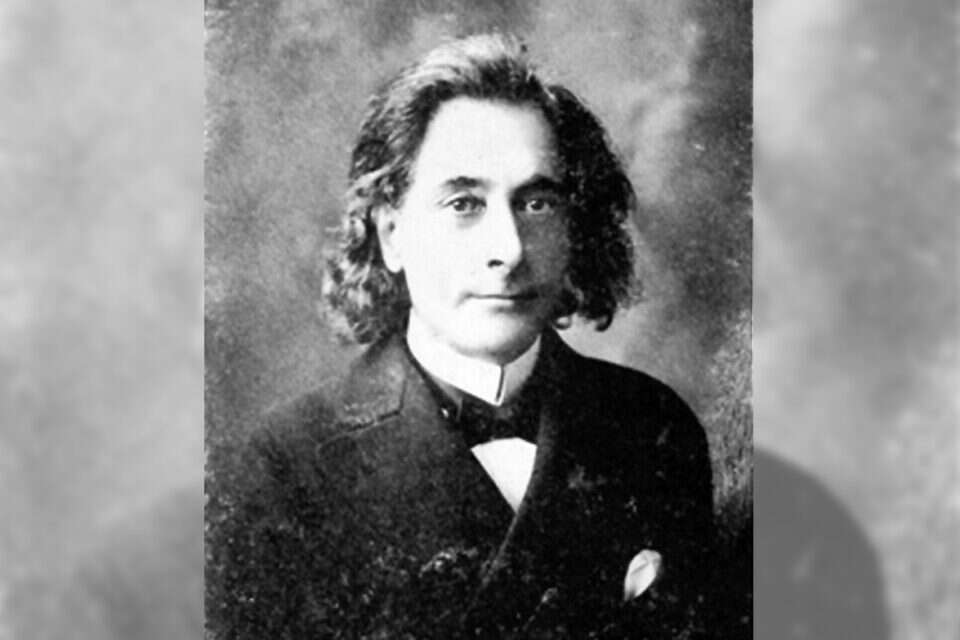A rare and special copy of the first edition of the poems of the Hebrew poet Naftali Hertz Imber, which includes for the first time in print his poem "Our Hope", the original version of "Hope" - the anthem of the Zionist movement and the State of Israel, has been unveiled in recent days in Jerusalem.
He dedicates the copy of his book "Barkai" in the first edition to "Reviving the Hebrew Language", his friend Eliezer Ben-Yehuda.
The book will be up for auction in about three weeks at the Kedem Auction House in Jerusalem at a starting price of about NIS 60,000.
On the back of the book's title page, Imber writes a dedication to his friend: "To my friend the linguist ...
.
The author is a souvenir from the author. "It is interesting to note that Imber chose to dedicate Ben-Yehuda, a distinctly secular figure, to Torah-rabbinical titles.
The rare dedication, Photo: Kedem Auction House
Ben-Yehuda and Imber, who were close in age, shared different interests, and despite disagreement between them at one point over opposition to Baron Rothschild's move, due to an article written by Imber against Ben Yehuda, at one point Imber moved to write in Ben Yehuda's newspaper ". Before printing the book "Barkai", Imber even published an ad in the newspaper "Hatzvi", which testifies to the friendship and mutual appreciation that prevailed between the two: ... ".
Under the ad was printed "Editor's note": "We have seen these poems written by H. Imber and according to the rule in our hands for the tool of the eye and do not turn to its creator.
It is our duty to say that a sublime spirit of poetry hovers over them, their logic convenient and desirable.
The language in them is clean and clear and the ideas are not there.
Many of these songs deserve to be folk songs.
In general, because these songs are faithful national songs, made by an excellent poet. "
Eliezer Ben Yehuda, Photo: From Wikipedia
The first version of "Our Hope" was written by Imber, according to his testimony, in 1877/8, during his stay in the city of Iasi, Romania. The song was composed in 1886, after Imber drank to the point of ignorance at the Purim celebrations in the Gedera colony, when he stood up and declared: "I have just connected the first two stanzas to our national song, to express our hope."
A brief history of hope
Later, during his tours of the colonies of Eretz Israel, Imber changed the song and added houses to it, until they published its final version in the song collection "Barkai".
About a year after the publication of the file, the song was composed by Shmuel Cohen (1870-1940), a pioneer of Rishon Lezion.
Cohen's melody is based on a Romanian cartwright song with Slavic roots.
The composed song was adopted by the people of the colonies, from there it reached Europe, and soon began to be used in Zionist congresses as well, when it was sung at the end.
Over the years there have been several changes in the lyrics of the song, including a change of name to "Hatikva".
The main changes took place in 1905 when the line "return to the land of our ancestors to the city where David lived" was replaced by the line "to be a free people in our land, the land of Zion and Jerusalem", and the phrase "old hope" was replaced by "two thousand years of hope".
Without being so established in official law or regulation, the first two stanzas of the poem were accepted almost unquestioningly as the national anthem of the Jewish people.
In 1933, "Hatikva" was recognized as the anthem of the Zionist movement, and with the establishment of the State of Israel, it was unofficially used as the national anthem.
Only in 2004 was "hope" officially enshrined in law as the anthem of the State of Israel.
Maron Aran, one of the owners of the Kedem Auction House in Jerusalem, notes that "this is a rare item that connects two of the most important cultural figures in the Zionist establishment of the time.
In recent years we have seen a growing interest in items related to the beginnings of Zionism that is affecting a consistent rise in their prices from sale to sale - indicating that rumors of the death of Zionism were premature.
We also see this among very young people who purchase such items for sentimental reasons. "

